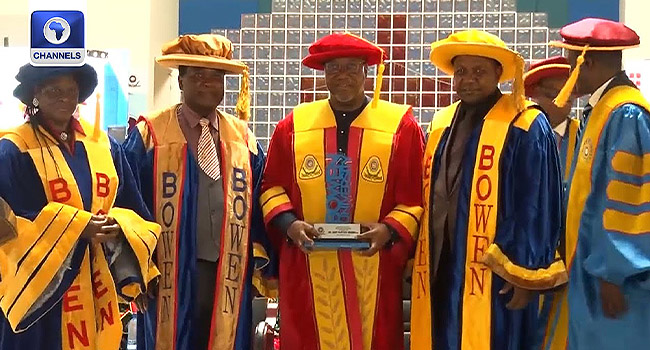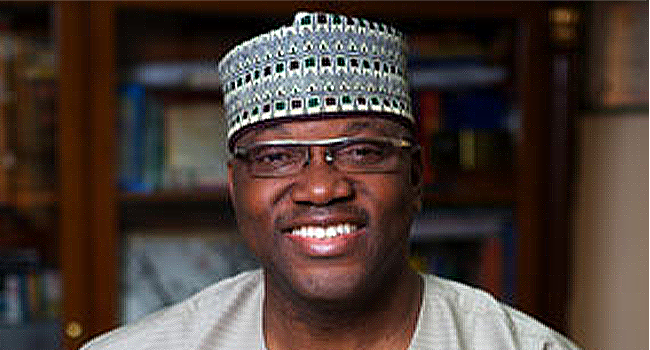An Emeritus Professor of Political Science with the University of Jos, Professor Isawah Elaigwu, has called for a single tenure of five years for all elected chief executives at all tiers of government to make the office more competitive.

Advocating for a single term of five years office for Nigerian politicians, the Professor noted that “one of the greatest problem, now, in Nigeria is the psychology of self-succession” as he recommended a single five term for all chief executives at each tier of government.
Referring to the proposed seven year single term initiated by President Goodluck Jonathan in 2011 shortly after his election, the don stated that “six or seven in Nigeria seems too long for many Nigerians.”
According to the Political scientist, “any leader who cannot deliver promises he’s made in five years, is inept.”
Identifying the advantages of limiting the services of elected ‘Chief executives’ to single tenure, Professor Elaigwu stated that “a single tenure Chief executives will produce less political acrimony, more time to concentrate on service delivery, less form of democratic deficits, less pressure on public treasury and better political stability.”
In a direct remark to the Senators and Speakers of the State House of Assembly present at the retreat, the professor urged incumbent elected officials must not benefit from this planned reform. “No one currently serving as Chief executives shall benefit from this constitutional provision” he said.
Prof Elaigwu advised the Upper Chamber of the National Assembly to look into various aspects of the 1999 constitution when it finally begins to amend it.
The Professor insisted that putting the Constitution to use is now more important than writing it.
“No Constitution operates by itself. A Constitution is operated by human beings and the human values of acceptance of the rule of law” he said, adding that “no one is above the rule of law.”
“Adherence to the principle of justice and equality are crucial dimensions of our process of constitutionalism, that is to say, Constitution in practice” he stated.
Elaigwu is an Emeritus of Political Science with the University of Jos and he is currently the President of the Institute of Governance and Social Research (IGSR).
He has authored a number of books on Nigeria’s political history including ‘The Politics of Federalism in Nigeria.’
Speaking earlier, Deputy Senate President, Ike Ekweremadu, who is also the chairman of the Committee outlined a 16-item list for the retreat and amendment to include devolution of power, creation of states, citizenship protection the immunity clause, state policing, among others.




